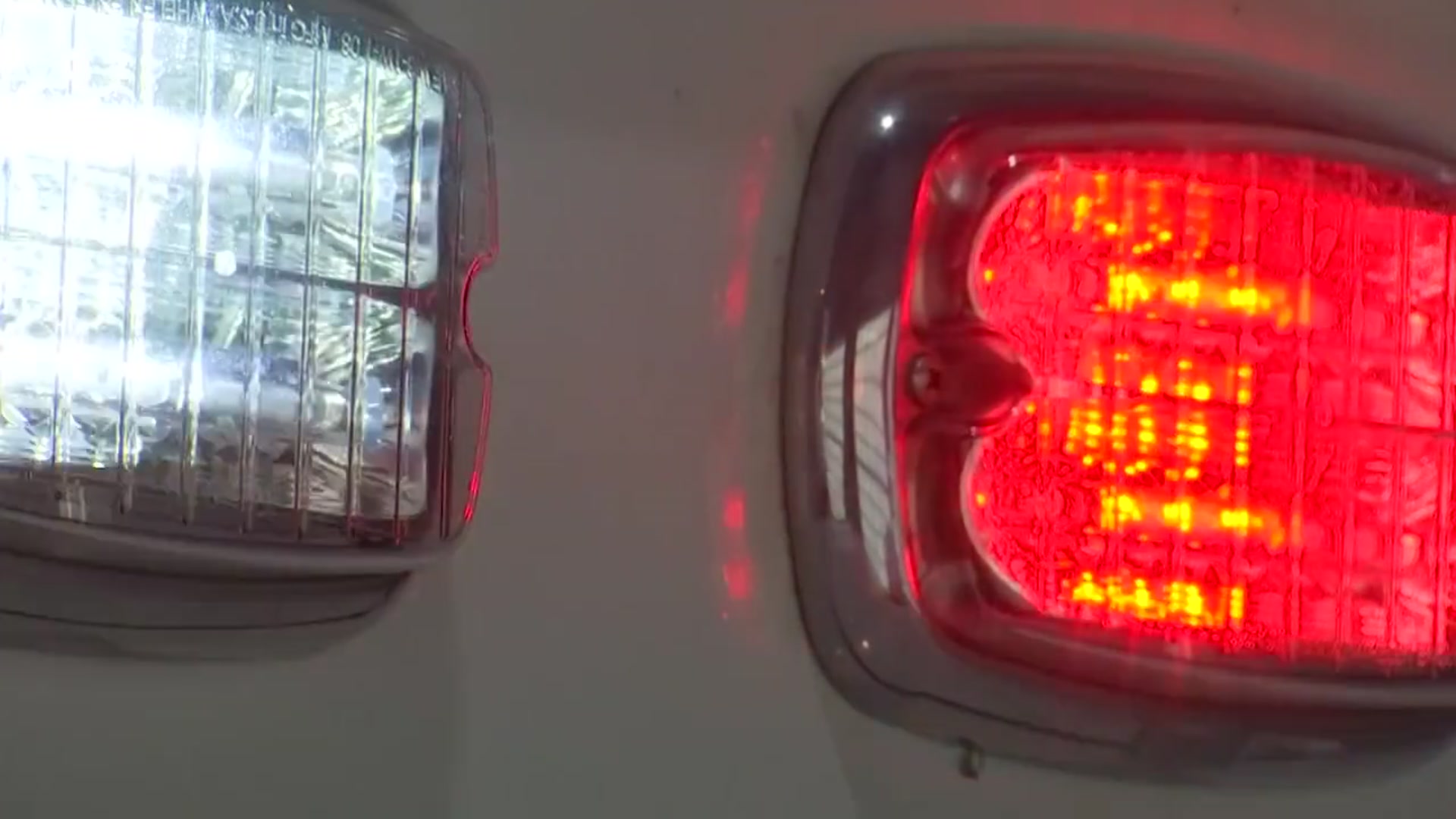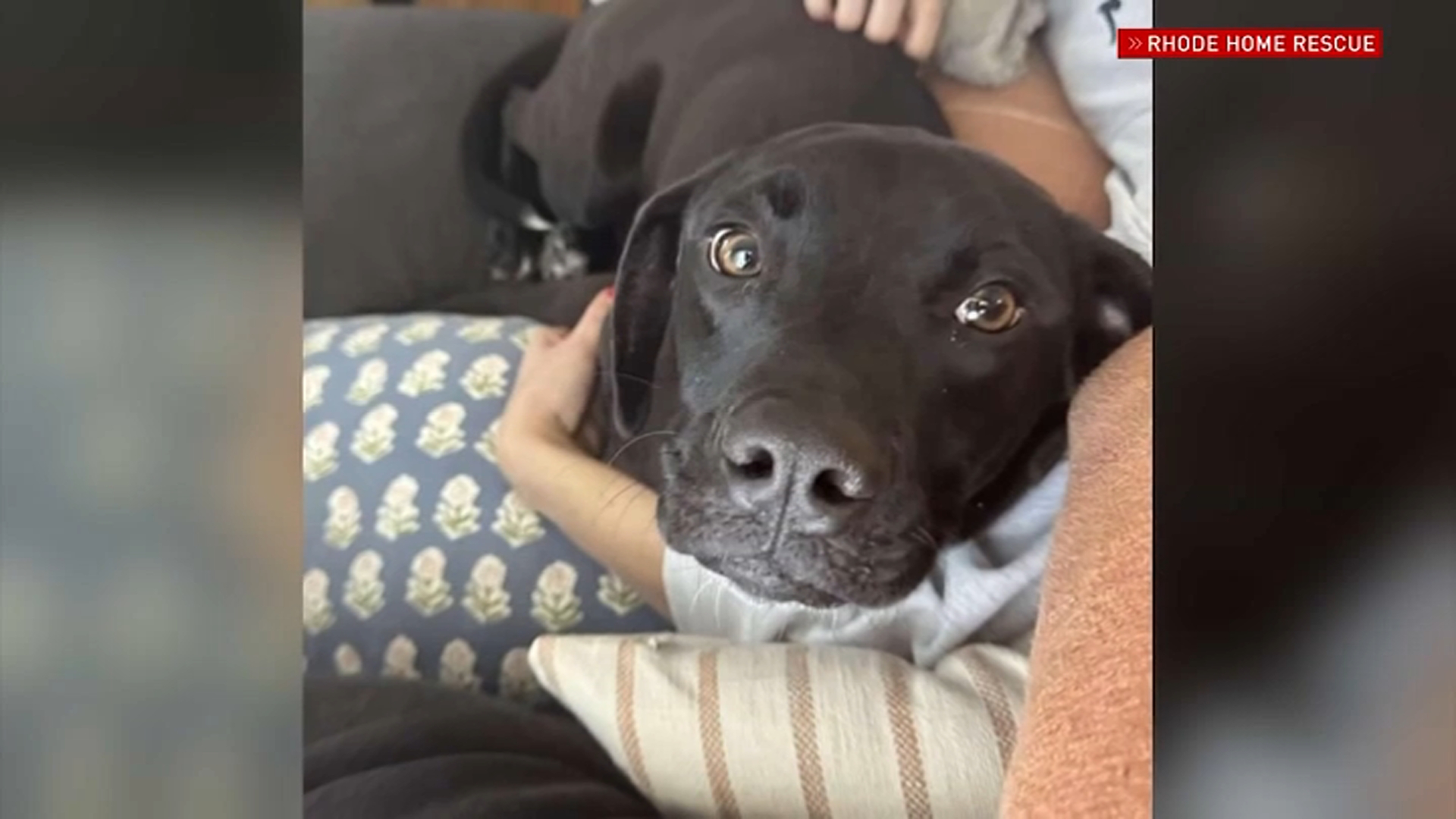Emergency responders across Massachusetts are now learning how to care for police dogs following the implementation of Nero's Law.
The legislation is named after the K9 injured in a shooting that killed his partner, Yarmouth Police Sgt. Sean Gannon in 2018. Up until it was signed into law this year, Massachusetts did not allow emergency medical personnel to treat and transport police K9s injured on the job.
WATCH ANYTIME FOR FREE
>Stream NBC10 Boston news for free, 24/7, wherever you are. |
Two police K9s have since been treated and transported by emergency responders under Nero's Law, including this week.
In July, K9 Frankie was shot by a wanted man during a police standoff in Fitchburg. He received emergency treatment by EMS and was rushed to Wachusett Animal Hospital in Westminster, where he was pronounced dead.
Get updates on what's happening in Boston to your inbox. Sign up for our >News Headlines newsletter.
Monday, Westborough EMS transported K9 Orry to Tufts Veterinary Hospital in North Grafton after a driver crashed into the state police cruiser he was in, on a detail protecting a road crew on Interstate 495 in Hopkinton. His partner, Trooper Kenneth Hanchett, 37, was transported by ambulance to UMass Medical Center in Worcester, where he was treated for injuries from the impact and remained overnight. Both were released from their respective hospitals and reunited Tuesday.
On Wednesday, the Cummings School of Veterinary Medicine at Tufts University, in collaboration with the State of Massachusetts Animal Response Team, the Massachusetts Veterinary Medical Association and Massachusetts Vest-A-Dog, held a training for veterinarians and veterinary technicians who will be helping train emergency medical services personnel in providing basic life-saving care and transport to K9s injured in the line of duty.
Local
In-depth news coverage of the Greater Boston Area.
Dr. Sean Majoy, an assistant adjunct professor, drew on his experience as an Army veterinarian for the training that included treating gunshot wounds and other critical injuries.
"The training to treat an injured police dog in Massachusetts is pretty much the same as what we were training for dogs injured in the battlefield in Afghanistan, how to stabilize trauma and how to get them to the next point of entry care, hospitals for definitive treatment," Majoy said.
Be prepared for your day and week ahead. Sign up for our weather newsletter.
He said emergency medical technicians and paramedics have the skillset and tools needed to provide treatment to dogs, they just have to adjust for the anatomical differences.
Cummings' simulation laboratory manager, Mike Santasieri, demonstrated CPR on a realistic-looking practice K9.
"Unlike people where you can make a seal around a person's mouth, you can't necessarily do that on a dog, especially working dogs, because they have those nice long noses, so we're going to use their nasal airway instead," Santasieri explained to the class before showing them how to do mouth-to-snout resuscitation.
"We want to treat these working police dogs just like you would any police officer that is injured in the field. They require and deserve the same type of treatment that their human counterparts need and get," said Majoy. "We have a huge group of EMTs and paramedics that are out there in the field responding, and it just makes sense to train them to stabilize these dogs, as well."
State Rep. Steven Xiarhos, who sponsored Nero's Law, attended the training.
"It's very powerful. Bittersweet, in a way, because it took a tragedy of the shooting of Sean Gannon and K9 Nero. And to be here today to see the training happening and seeing dogs that are really their almost human partners, they are really special to us. So to see them being saved is very special," said Xiarhos.
Trainings for EMS personnel are currently taking place across the state.
Under Nero's Law, emergency medical personnel can provide certain non-invasive first aid procedures known as basic life support. Xiarhos said he would like to expand the permitted services.
"The plan for us next year as a state representatives is to file a bill that would allow for advanced life support, perhaps for certain paramedics and EMTs that are assigned to the SWAT team, for instance, so they can do advanced life support if necessary, but right now, to see the basic life support and the ability to transport in an ambulance is huge," he said. "It only happens in very few states in the nation."



